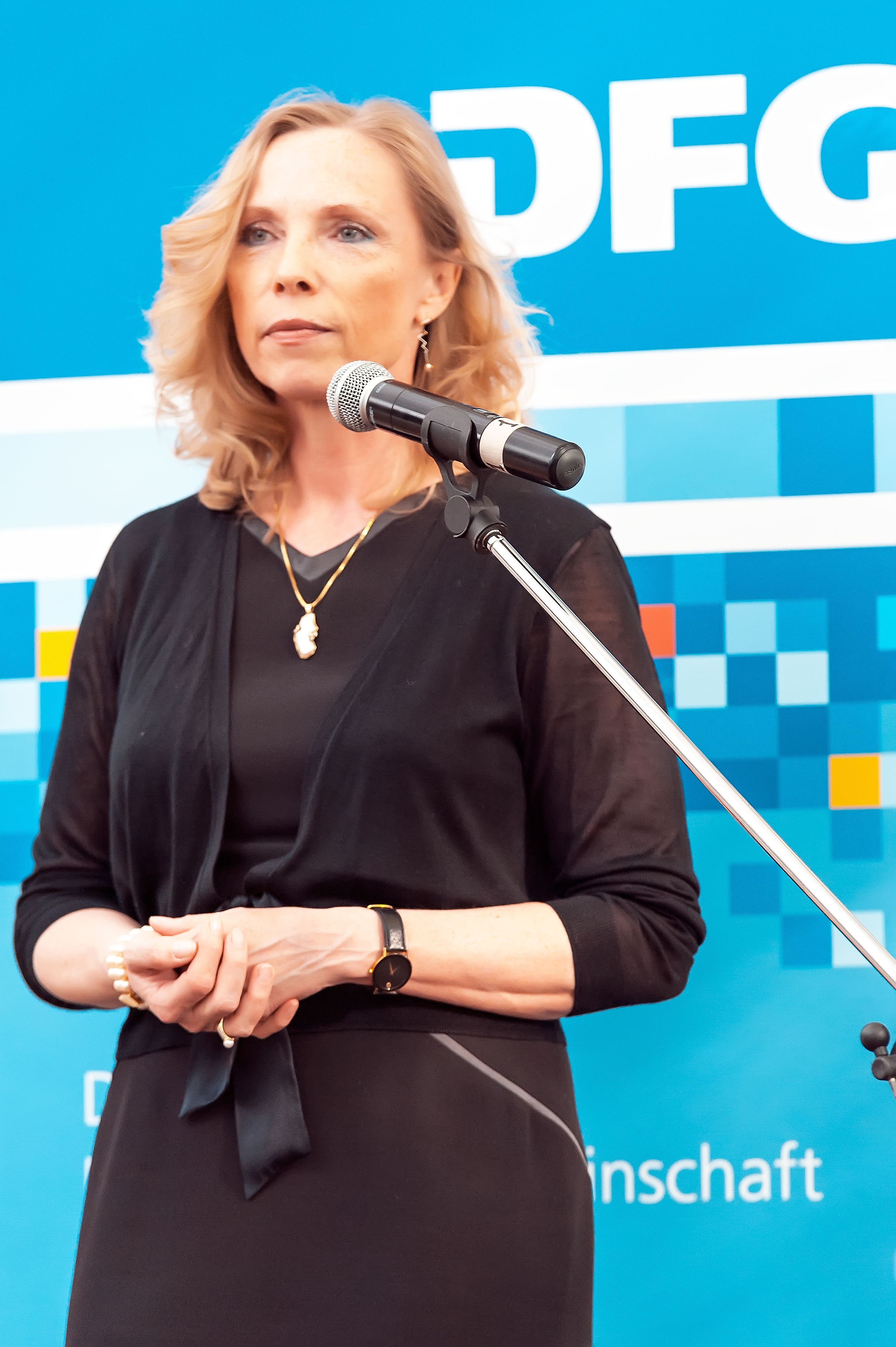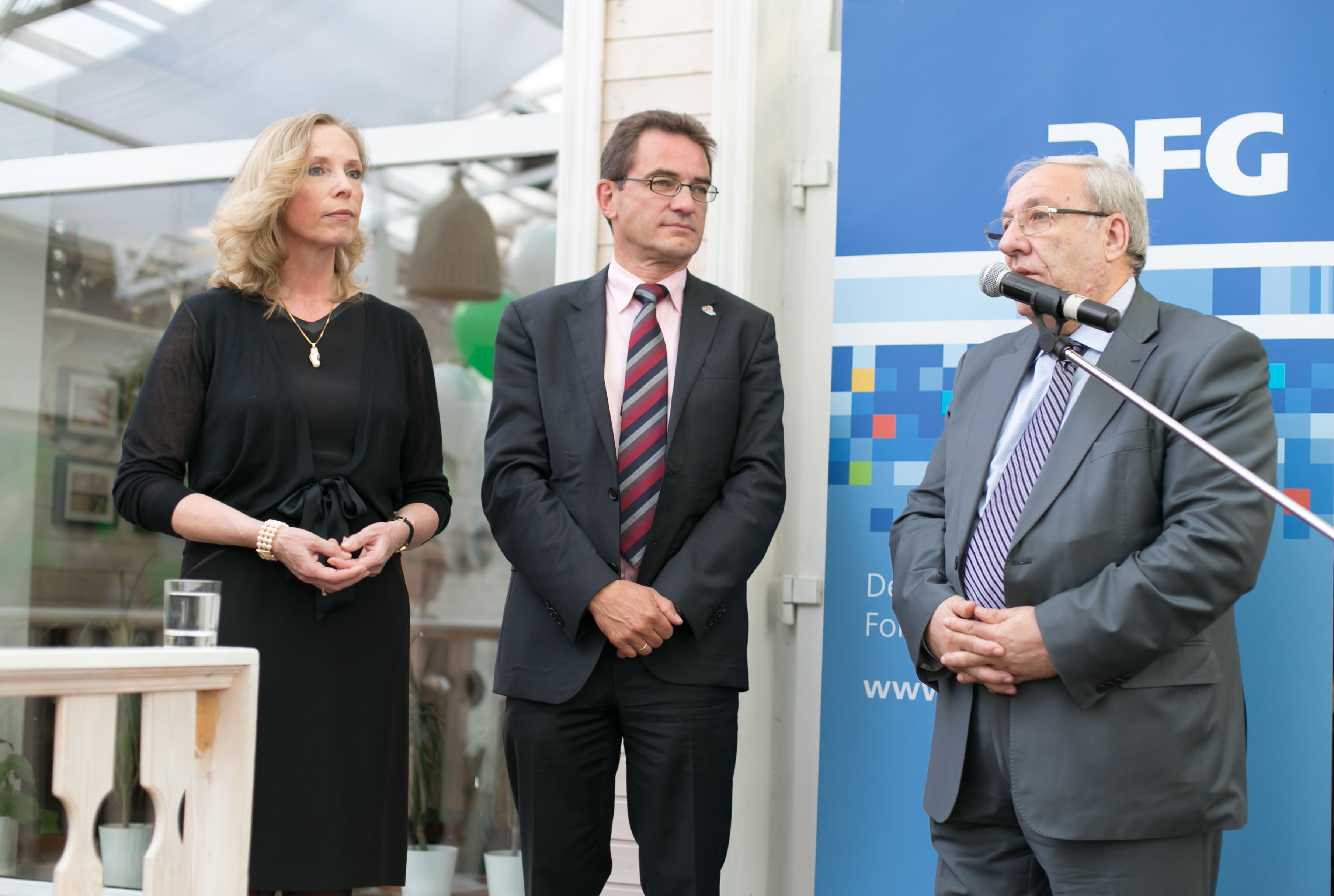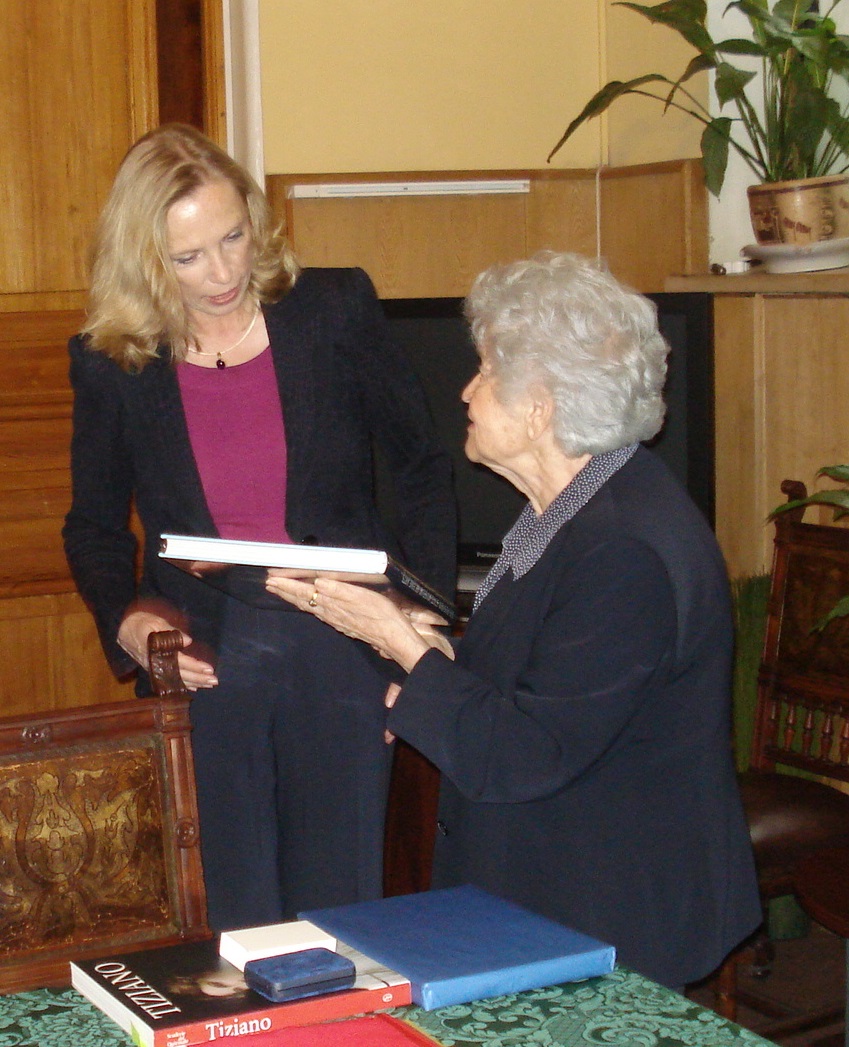Secretary General Dorothee Dzwonnek opens DFG summer reception in Moscow

DFG Secretary General delivers the opening address
(10.06.13) On 6 June the Secretary General of the Deutsche Forschungsgemeinschaft (DFG, German Research Foundation), Dorothee Dzwonnek, welcomed guests to the DFG's traditional summer reception in Moscow.
Addressing an audience of 250 guests including academics, politicians and members of the business community, she thanked the representatives of both countries for the successful collaboration of the past 12 months, which included the bilateral Year of Science and Russia's Germany Year.
"A year ago we celebrated the end of the German-Russian Year of Science and the start of Germany Year in Russia. Both were very productive, and their success indicates that cooperation in science and research is one of the most important pillars of the relationship between our two countries," Ms. Dzwonnek said. There were plenty of highlights - from the DFG's point of view, the Secretary General mentioned the workshop held in Moscow in February 2013 on clusters of excellence and Collaborative Research Centres in the life sciences, natural sciences and engineering sciences. The second German-Russian Young Researcher Week in Yekaterinburg also provided an opportunity to thank the German Embassy and the representatives of the German House for Research and Innovation (DWIH) in Moscow for the highly successful joint effort.

DFG Secretary General Dorothee Dzwonnek, envoy Georg Birgelen, RGNF chairman Vladimir Fridlyanov
The Permanent Deputy Ambassador, Georg Birgelen, stressed in his address that the DFG had played a pivotal role in these two politically important initiatives through its commitment on the ground and its many activities. It was then the turn of Vladimir Fridlyanov, former Deputy Minister and current Chairman of the Council of the Russian Foundation for the Humanities and Social Sciences (RGNF), to address the guests, and he had a special reason for doing so. As of next year, the RGNF and the DFG intend to return to the joint funding of projects in these areas.
Ms. Dzwonnek also took the opportunity to present two new publications, which were making their debut appearance in Moscow. One was the new English version of the DFG Funding Atlas, which provides a useful summary of opportunities to collaborate with German researchers in a wide range of research areas. The second was a brochure published by DWIH Moscow illustrating some of the most important activities carried out by German research and funding organisations in Russia over the past three years.

Dorothee Dzwonnek and Irina Antonova, Director of the Pushkin Museum of Fine Arts in Moscow.
The Secretary General of the DFG was accompanied by Manfred Niessen, director of the Humanities and Social Sciences division, Hans-Dieter Bienert, who is responsible for Classical and Ancient Studies, and Christian Schaich, who is responsible for partnerships with Eastern Europe/CIS. To promote collaboration in classical and ancient studies and museology, the next day the delegation visited the State Pushkin Museum of Fine Arts and met its director, Irina Antonova. The DFG is funding a workshop on this topic to be held in October, as part of which it will celebrate the 10th anniversary of its Moscow office.